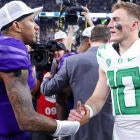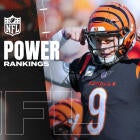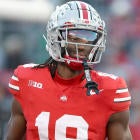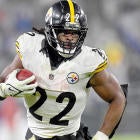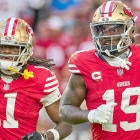It's a tough time to be a general manager in the NFL.
Doesn't matter what time of year it is or how close you might be to vacation, or even the start of training camp. GMs are suddenly imperiled around the league, with owners willing to fire them no matter how unusual or unconventional the timing and no matter how much recent success they might have enjoyed. It has long been said that the NFL is a bottom line business, but even more than that, most recently, I would posit that another football cliche is even more applicable.
This is, perhaps more than anything else, a relationship business, and the moment an owner no longer believes that relationship with a GM best serves his purposes or works in his favor or makes him sleep easy at night, well, massive change could be imminent. Sometimes trends tend to sneak up on us in this league, and in terms of what owners now covet in terms of their top football personnel man, it's fair to say a quiet but powerful new movement is afoot.
We can all agree this is a copycat league, and all of a sudden it seems increasingly clear that old-school GMs, the gruff, film-driven scouts who were in vogue not too long ago, are no longer as attractive. These are the GMs who logged extensive years on the road viewing players but have less polish and panache and aren't as adept at communicating with co-workers or dealing with the media as they are breaking down tape.
Instead, owners seem to be gravitating to a style they find more CEO-like, more akin to the appearance and characteristics they'd seek for leaders of their non-football business. These are the more face-of-the-franchise type GMs who serve to meld football operations with the business side and who can speak the language of the business world. They are more analytical, and can serve to find consensus among the team's scouts but don't have to be primarily a "super scout" themselves. The demeanor of some of those recently let go seems to be out of favor.
"These owners want to have a guy leading football operations who they can relate to," said a high-ranking executive from one successful franchise who agrees that the archetype seems to be changing. "They want someone who looks the part and is comfortable interacting with every department in the building. They want someone who looks like they came from the corporate world and who can speak their language and who is willing to meet sponsors and help on the business side. They want someone who is smooth with the agents and has more of a background in negotiating and the cap. They want a personality that isn't too volatile and doesn't make waves with the players or the media. I'm telling you, things are changing. I'm not saying it's for the better, but look at who has been let go this year."
Indeed, I believe he is on to something.
The Panthers' bizarre firing of Dave Gettleman just about a week before opening training camp certainly bears elements of this theory. Gettleman's teams won a bunch of games and nearly won the Super Bowl two years ago, but he was very much a product of the old-school model. People skills mattered far less than stone-cold evaluations. Gettleman wasn't exactly beloved in the locker room and he was never going to be an expert communicator or a figure to meld the business operations with football. For him -- and for many others -- the answers were always in the film. He wasn't afraid to ruffle feathers and he'd quickly become a divisive figure in the agent community. He was never going to be suave or GQ.
The Chiefs were in the middle of their best sustained run of success in roughly 50 years with John Dorsey as GM, yet he was shockingly fired shortly after mini-camp, at a time when most of the team's staff were already on vacation, and when most assumed Dorsey would be getting a contract extension, like Andy Reid. Dorsey, like Gettleman, is a throwback, a film-monger. He's more comfortable in shorts and a sweatshirt than a suit, and he doesn't put on airs. He was much more endearing to the agent community and had no issues with players (unlike Gettleman), but ultimately owner Clark Hunt viewed him as more of a scout/evaluator than a leader of the franchise. He wasn't much interested in the business side of things, maybe didn't see the entire big picture in the way ownership did and was very much the product of the Green Bay, old-school means of managing.
"They don't want a road scout as their GM," the executive opined. "I really think those days are over. That blue-collar guy who spent all of his time looking at players and eating at Applebee's or Chili's or whatever -- who had his spots in each college town to eat or drink and that's what they talk about. That's not what they're looking at anymore. That's not what they relate to."
The 49ers finally parted with Trent Baalke this offseason after years of him being a highly-polarizing figure among several coaching staffs and with the fan base. He curried little favor with the media, wasn't much interested in messaging or anything, really, outside of watching film. He clashed with players and agents and by no means was going to be confused with someone at the vanguard of analytics and advanced metrics. He was never going to help you sell tickets. He very much embodied the kind of guy who got hired as a GM 20 or 30 years ago.

Ditto for Ryan Grigson in Indianapolis. He too was a longtime road scout who had very little experience being a facilitator and department head prior to his hiring by the Colts. He had virtually no relationships with agents prior to his hiring. He was another film-grinder who didn't have to interact with people through the building on a daily basis prior to landing that job, and who was consumed with player evaluation. He too had messaging issues with the media and had some schisms with the coaching side.
Doug Whaley in Buffalo had a similar background, and the timing of his departure, right after the draft, gained much attention as well. Whaley had been a rising scout/evaluator with the Steelers prior to his arrival with the Bills who spent most of his time on the road. He, too, had little background leading meetings, forming consensus, building bridges. And he had persistent trouble connecting with coaches, and avoiding fissures. He struggled communicating via the media and rubbed people the wrong way.
Of course, in many of these instances a bad run of decisions on personnel had plenty to do with the changes being made. That's especially true of Grigson and Whaley. But the other stuff, the inter-personal stuff, whether it was failing to connect with coaches or players or the owner himself, certainly played a large role as well, particularly in the unusual nature of some of these firings.
And in almost every case, the man who replaced the outgoing GM had a varied background and skill set. The Chiefs promoted Brett Veach, 39, who has been with Reid going back to Philadelphia in 2007, is well-aware of inter-office politics and dynamics in Kansas City and is part of younger wave of execs. The Bills hired Brandon Beane, 40, who has experience on the business side from his long run in Carolina, where he became a fixture in the office – rather than on the road – and where he had years of interacting with ownership and absorbing the culture at the highest reaches of the game.
The 49ers went entirely outside the box in hiring John Lynch straight out of the broadcast booth at Fox with nary any front-office experience. But it's fair to say Lynch, 45, is a great communicator and super smooth and dapper who is anything but a throwback, old-school hire. He is able to adroitly read people and read a room and can fit in seamlessly around billionaires. And while Grigson's replacement in Indy, Chris Ballard, very much has a scouting background, he has cultivated strong relationships with agents in recent years, he has been much more of a fixture in the office and he is keenly aware of politics and projects as polished and smooth.
Even in the case of the Panthers, where owner Jerry Richardson went back to his former long-time GM Marty Hurney to replace Gettleman, many of the boxes were checked. Yes, Hurney is from the old school and cut his teeth in the glory years of the Redskins under Bobby Beathard, but he also brought in many of the key players, coaches and scouts still in Carolina, and is a well-liked figure already in that building who will have no issues interacting with others. He's already respected by the media down there, and already has a connection with ownership.
"He doesn't have the same characteristics as some of the younger guys being hired," the exec said, "but the most important thing is Jerry Richardson is already comfortable with him. He has that relationship. The owner can relate to him."
Ultimately, it may be a business, but it's still personal. For owners, these teams are their brands, and subconsciously or not, what they are coveting most seems to be shifting and a new paradigm is coming into focus. Office politics matter and forging a bond with the owner is imperative, or no amount of regular-season wins or even a Super Bowl appearance might be able to save a GM's job.














